 For a long time, it has been known that the Greek dramatist Aeschylus in his tragedy Prometheus used a narrative which there is in our [Chechen and Ingush] folklore.
For a long time, it has been known that the Greek dramatist Aeschylus in his tragedy Prometheus used a narrative which there is in our [Chechen and Ingush] folklore.Bats I. Tsiskarov told this narrative in 1847 in Tiflis [Tbilisi] in newspaper Caucasus in his article Pictures of Tushetia.
V. Svetlov in 1886 published in St. Petersburg Seven Sons of Snowstorm, telling Ingush legend that contains this narrative. On the basis of this work, Ingush writer Said Chahkiyev wrote his highly artistic poem Cup of Tears. In this work, Chahkiyev told Prometheus' narrative in highly qualified way.
Comparing this poem to the famous in the whole world work Bound Prometheus, we can find many similar traits.
1. In both works main heroes Greek Prometheus and Ingush Kurka resist gods (Zeus and Sela) and help people: Prometheus brings fire, Kurka brings water, bread, and rams.
2. Because of it, Sela (Greek Zeus) chained both heroes to the top of the mountain. They both were chained to a mountain in the Caucasus. Besides that, in both legends events are going on in a similar way.
In 1966, director of Urus-Martan secondary school Ahmed Suleimanov gave us two legends Pkhari and Pkharmat which he wrote down in 1937-1940 in Zumsa and Itum-Kale.
Both legends have similar contents and can be called two variants of the same legend. Their contents is following.
In ancient times, there were Narts. They did not have fire. There was a Nart among them whose name was Pkharmat (in another version Pkhari). He was upset and was thinking how to do good to Narts, how to bring them fire. However, fire was possessed by evil and cruel Sela and he did not give it to anyone.
Once, Pkharmat rode a horse in order to take Sela's fire. Narts' mother Sela-Sata was Sela's beloved one. She helped Pkharmat to steel fire from Sela's hearth. Learning about it, Sela sent a dragon after Pkharmat. However, it lost energy and left behind. Then, Sela made a black night in order to make Pkharmat to lose his way, but it did not happen. Sela made a snowstorm. However, Pkharmat went on until he reached the goal. Pkharmat brought fire to people. However, Sela punished Pkharmat. He tied him with iron chains to the main top of Bashlam. Sela gathered all the cold around him. A dragon lies around him in order to watch him. Bird Ida pecks his liver with it beck. Every day when it is going to peck, it asks Pkharmat: "Have you repented for what you did?" However, Pkharmat does not repent. Then Ida pecks his liver. This is legend about Pkharmat.
The contents of this legend is extremely close to the Greek myth about Prometheus. In these two works there are many similar details. They are:
1. The hero goes to take fire.
2. The possessor of fire is evil and cruel god of sky and lightnings Sela (Greek Zeus).
3. The hero is tied to the top of one of Caucasus mountains with chains.
4. His punishment is that a bird becks his liver, and so on.
Moreover, we made a research that indicated a hypothetic possibility that:
1) in the Greek variant of the legend god's name is Zeus, in the Wainakh variant god's name is Sela; they are similar and may have the same origin;
2) Greek Prometheus and Wainakh [Chechen and Ingush] Pkharmat (Pkhari) may have the same origin.
In folklores of other Caucasus nations (Georgians, Kabardians, Abhazs, Ossetins, Armenians, and others), there are legends about Prometheus. However, unlike the contents of Wainakh legends, their contents is not so close to the contents of the Greek legend. Legends of some nations (some Georgian and Armenian variants) do not mention fire. The hero harms people. In the beginning, he is strong, but then becomes powerless.
Nevertheless, for a long time, scientists, for example, M. Talpa, M. Chikovanis, S. Nutsubidze, and others say that Greeks borrowed this legend from our nations' folklores. M. Chikovanis and S. Nutsubidze say that they borrowed from Georgians. M. Talpa says that they borrowed from Kabardins. N. Y. Marr and V. Miller do not specify.
Scientists do not know when Wainakh legends about Prometheus came to existence. However, there is a possibility that the Greek myth originates from Wainkh folklore because the contents of the Greek myth is very similar. Materials support this our opinion regardless of our desire.
Here, there is a question: how and when Greeks borrowed this our legend?
First of all, in the ancient times, distant ancestors of Wainakhs and other Caucasus nations lived in Asia Minor. It is known that Greeks also lived there. Here, it is remarkable that Hesiod was the first one who wrote down the Greek myth, and his father was from Asia Minor.
Moreover, when Greeks came to Balkan peninsula, Pelasgians and Leleges lived there. They were nations, close to Caucasus nations.
Also, we know that there were Greek colonies in Caucasus. Their scientists and writers studied history of many Caucasus nations and culture of many regions where they traveled. Geographer and historian Strabo wrote about many Caucasus nations. His mother was from Caucasus. Later, he was there himself.
Moreover, as we already said, scientists found that the Greek language had words from Caucasus language, Greek culture and philosophy were related to Caucasus ones.
Let us remember that academician N. Y. Marr wrote: "In Greek, words such as "soul," "brother," "sea" are Japhetic (that is, Caucasian). Names of Greek gods, heroes, villages, rivers, and mountains are Japhetic." Moreover, Marr said that name Prometheus used to be name of god of fire in Caucasus.
A group of scientists wrote a paper where they state that Greek culture and philosophy were related to Caucasus ones. This is very important.
So, our folklore is related to the world folklore.
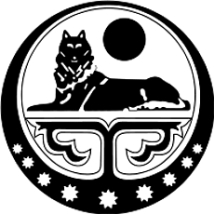

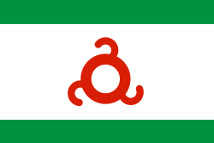
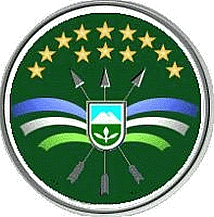

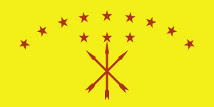
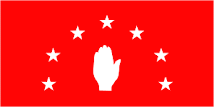
No comments:
Post a Comment